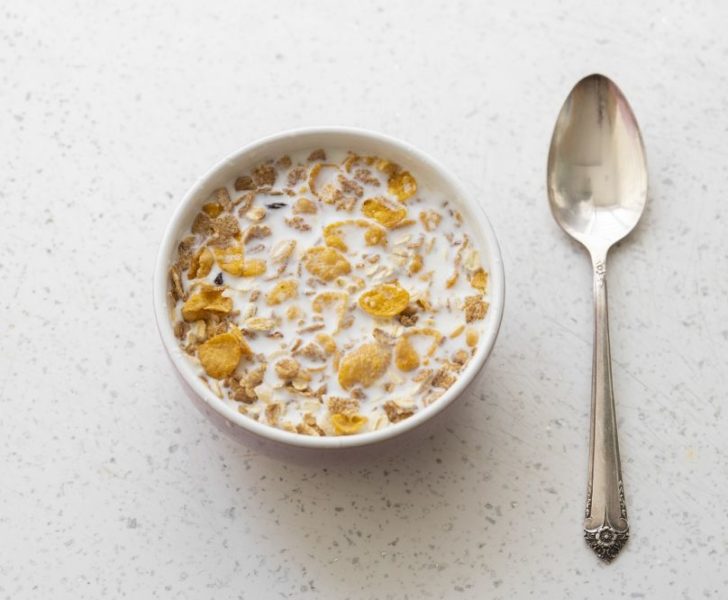Keto Diet Vegan: A Comprehensive Overview

Introduction
The concept of combining a vegan lifestyle with the ketogenic diet, known as the ”keto diet vegan,” has gained popularity in recent years. This article aims to provide a thorough understanding of this dietary approach, including its definition, various types, popularity, and quantitative measurements. Additionally, the article will discuss the differences between different keto diet vegan variations, explore their historical background, and highlight their pros and cons.
I. An In-depth Look at Keto Diet Vegan

The keto diet vegan is a dietary regimen that combines the principles of veganism with the ketogenic diet. It focuses on consuming high amounts of healthy fats, moderate protein, and very low amounts of carbohydrates. By restricting carbohydrate intake, the body enters a state of ketosis, where it utilizes fat as the primary source of energy rather than glucose.
II. Presentation of Keto Diet Vegan
1. Types of Keto Diet Vegan:
– Standard Keto Vegan: This approach involves incorporating high-fat plant-based foods while strictly limiting carbohydrates.
– Modified Keto Vegan: This variation allows for slightly higher carbohydrate consumption, primarily from low-glycemic index vegetables and plant-based protein sources.
– High-Protein Keto Vegan: This type emphasizes plant-based protein sources, such as tofu, tempeh, and seitan, alongside the standard high-fat and low-carbohydrate approach.
2. Popularity and Trend:
– The keto diet vegan has gained significant attention within the vegan community due to its potential health benefits and alignment with ethical beliefs.
– Many vegan influencers, fitness enthusiasts, and celebrities have promoted and adopted this dietary approach, increasing its popularity worldwide.
– Numerous online platforms, blogs, and social media accounts dedicated to sharing keto diet vegan recipes and success stories have further contributed to its increased visibility.
III. Quantitative Measurements of Keto Diet Vegan
1. Macronutrient Ratios:
– The keto diet vegan typically recommends a macronutrient ratio of approximately 70-80% fat, 20-25% protein, and 5-10% carbohydrates.
– These ratios may vary depending on individual needs, lifestyles, and health conditions.
2. Tracking Ketosis:
– Measuring ketosis is essential in monitoring the effectiveness of the keto diet vegan.
– This can be done through blood, breath, or urine tests that measure the levels of ketones in the body.
– It is important to consult a healthcare professional before and during the keto diet vegan to ensure optimal ketosis and overall well-being.
IV. Understanding the Differences among Keto Diet Vegan Variations
1. Food Choices:
– Standard keto vegan emphasizes healthy fats from plant-based sources, such as avocados, coconut oil, nuts, and seeds.
– Modified keto vegan includes more low-glycemic index vegetables, legumes, and whole grains.
– High-protein keto vegan incorporates plant-based protein sources like tofu, tempeh, and seitan.
2. Carbohydrate Intake:
– Standard keto vegan restricts carbohydrate intake to approximately 20-50 grams per day.
– Modified keto vegan allows for slightly higher carbohydrate consumption ranging from 50-100 grams per day.
– High-protein keto vegan typically follows the standard low-carbohydrate approach.
V. Historical Overview of Pros and Cons
1. Advantages:
– Weight Loss: The keto diet vegan may promote weight loss due to the combination of reduced carbohydrate intake and increased fat burning.
– Blood Sugar Control: By minimizing carbohydrate consumption, the keto diet vegan can help regulate blood sugar levels.
– Ethical and Environmental Considerations: The vegan aspect of the diet addresses concerns related to animal welfare and environmental sustainability.
2. Challenges:
– Nutrient Deficiencies: The elimination of animal-based products in the keto diet vegan may increase the risk of certain nutrient deficiencies, such as vitamin B12, iron, and omega-3 fatty acids.
– Limited Food Choices: The restrictive nature of the keto diet vegan may make it challenging to meet all nutritional needs, leading to potential dietary imbalances.
– Individual Variations: The effectiveness and safety of the keto diet vegan may vary among individuals, and it is crucial to consider one’s unique health conditions and consult a healthcare professional.
Conclusion
The keto diet vegan offers a unique approach for individuals seeking to combine the benefits of a vegan lifestyle with the metabolic advantages of the ketogenic diet. By understanding the various types, quantitative measurements, and historical context, individuals can make informed decisions about adopting this dietary approach. However, it is vital to consider individual needs, potential nutrient deficiencies, and consult healthcare professionals when embarking on the keto diet vegan journey.











